Hence it comes about that all armed prophets have been victorious, and all unarmed prophets have been destroyed
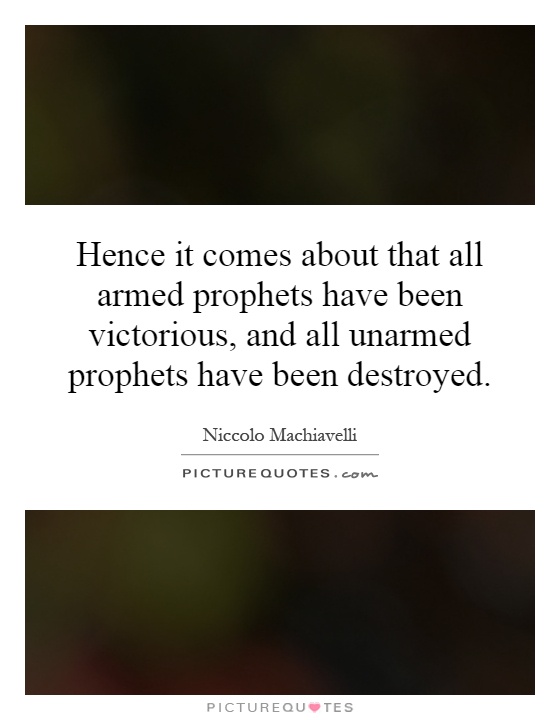
Hence it comes about that all armed prophets have been victorious, and all unarmed prophets have been destroyed
Niccolò Machiavelli, a renowned Italian philosopher and political theorist, is often associated with the idea that power and force are essential components of successful leadership. In his seminal work, "The Prince," Machiavelli explores the nature of power and the strategies that rulers must employ to maintain control and achieve their goals. One of the key concepts that Machiavelli discusses is the importance of being armed and prepared for conflict in order to succeed in the political arena.Machiavelli argues that armed prophets, or leaders who are willing to use force and violence to achieve their objectives, are more likely to be victorious than unarmed prophets, who rely solely on moral authority and persuasion. This is because, in Machiavelli's view, power is ultimately derived from the ability to exert control over others, and this control is most effectively achieved through the use of force. Armed prophets are able to intimidate their enemies, suppress dissent, and maintain order through the threat of violence, making them more likely to achieve their goals and secure their position of power.
On the other hand, unarmed prophets, who eschew violence and rely on moral authority and persuasion to achieve their objectives, are more vulnerable to attack and manipulation by their enemies. Without the ability to defend themselves or enforce their will through force, unarmed prophets are at a disadvantage in the cutthroat world of politics, where strength and cunning are often more important than righteousness and virtue. As a result, unarmed prophets are more likely to be destroyed by their enemies, who see them as weak and vulnerable targets.
Machiavelli's assertion that armed prophets are victorious while unarmed prophets are destroyed reflects his belief in the harsh realities of political power and the necessity of using force to achieve and maintain control. While Machiavelli's ideas may seem cynical and amoral to some, they are rooted in a pragmatic understanding of human nature and the dynamics of power. In Machiavelli's view, leaders must be willing to do whatever it takes to achieve their goals and protect their interests, even if it means resorting to violence and deception. Ultimately, Machiavelli's philosophy serves as a stark reminder of the brutal nature of politics and the challenges that leaders face in their quest for power and influence.

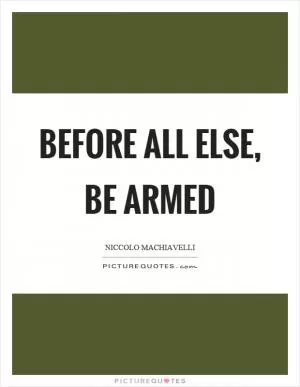

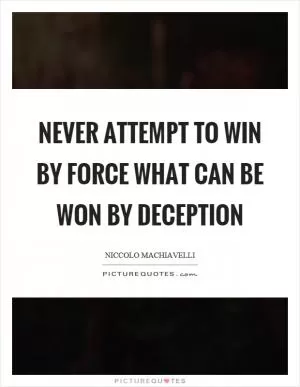
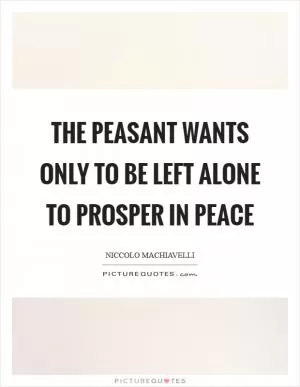




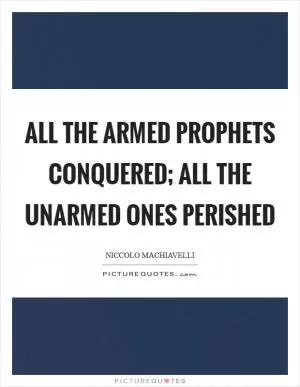
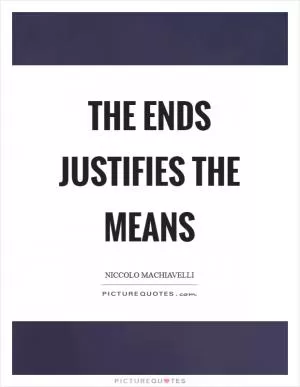
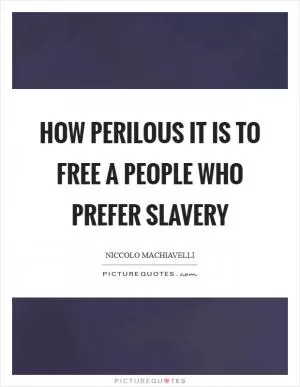
 Friendship Quotes
Friendship Quotes Love Quotes
Love Quotes Life Quotes
Life Quotes Funny Quotes
Funny Quotes Motivational Quotes
Motivational Quotes Inspirational Quotes
Inspirational Quotes